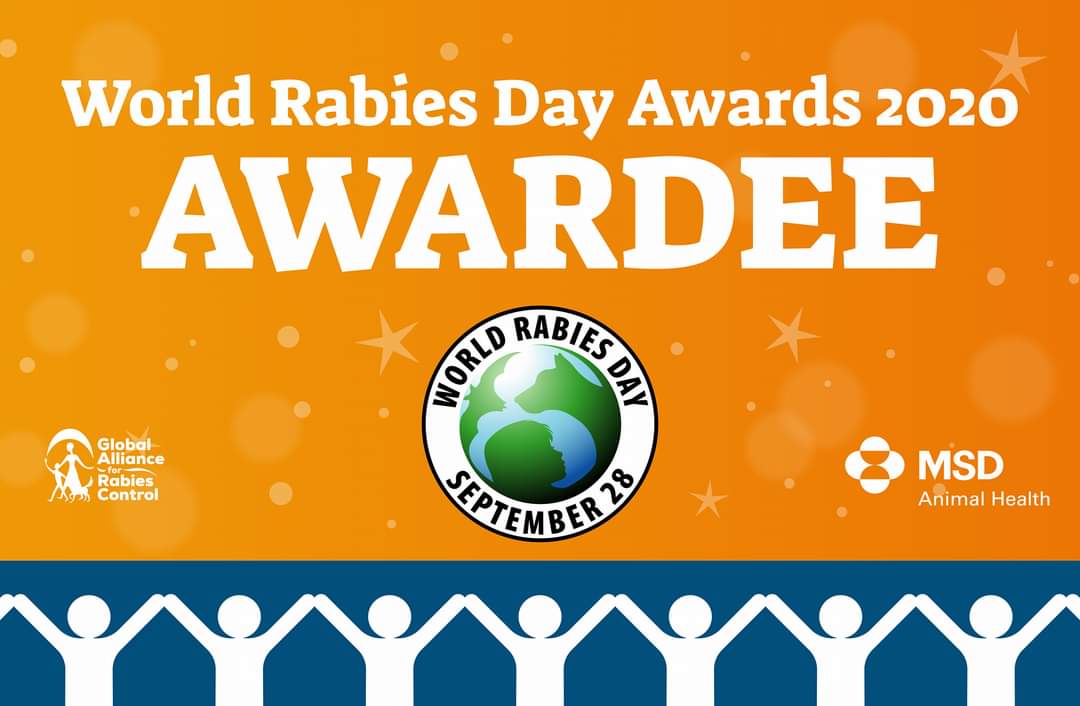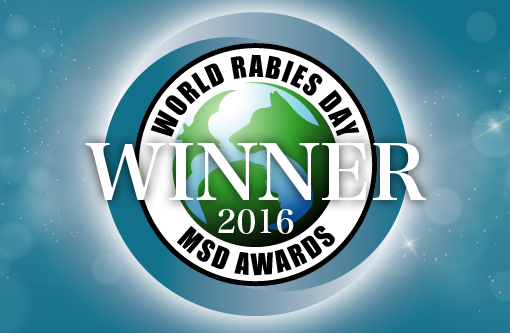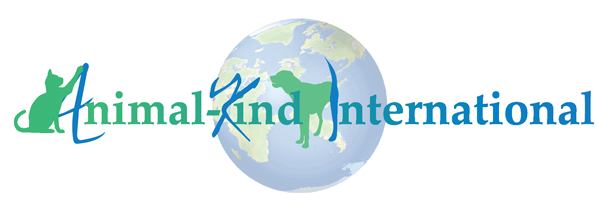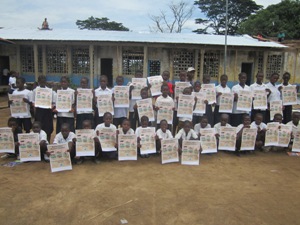
Report on Rabies Education and Prevention Program
Duration: September 1- August 30, 2013
Sponsor: Global Alliance for Rabies Control
The Liberia Animal Welfare and Conservation Society (LAWCS) is grateful to Global Alliance for Rabies Control for funding the printing of posters and flyers which were used to educate community people and school children in Voinjama District about rabies education and prevention.
A team from LAWCS was actively involved in creating awareness in various communities and schools in Voinjama District from September 1 to 30, 2013. The team met and inspired 104 community members in four communities, namely: Looking town Community, Tebormai Community, New Life Community and New Voinjama Community. The team also visited 10 schools and interacted with 10,027 school children on rabies education and dog bite prevention. The schools are: Voinjama Public School, Voinjama Arabic School, Selega Public school, Kabata Public school, Lawalazu Public school, Tennebu Public School, New Life Community School, Kids Connection Day Care School, Kintorma Community School and Ajezu Public School.
Rabies is a deadly neglected disease with little or no education in Liberia. 98% of the people met have no formal knowledge or education on rabies. The programme targeted communities where the number of dogs is high. Educating adults and children about rabies is an important step in promoting one health policy in Liberia.
The teachers, school children and community people expressed thanks and gratitude to LAWCS and the sponsor- Global Alliance for Rabies Control for undertaken this educative and helpful initiative that will help to reduce rabies incident in the various communities.
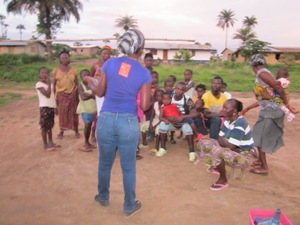
On behalf of the Liberia Animal Welfare and Conservation Society, I want to again extend thanks and appreciation to Global Alliance for Rabies Control for their timely support in empowering us to educate community people and children about this unknown disease- rabies.
We hope to also receive similar support next year to extend to other communities and schools with the initiative.
Thanks,
Morris Darbo
Program Coordinator
Report from Liberia Animal Welfare Society on World Rabies Day Events
Wednesday, November 10, 2010
We were very pleased to receive this report from the Liberia Animal Welfare Society on their World Rabies Day Events. The Liberian Animal Welfare Society is a volunteer group that is making a huge contribution under difficult circumstances toward rabies reduction and awareness and education of children and families about safety around dogs in Liberia. We hope you enjoy reading this report and are impressed with these tremendous accomplishments…
Liberia Animal Welfare Society, (LAWS), World Rabies Day Celebration
September 28, 2010. Report Date: October 3, 2010
LAWS wants to be grateful to all the citizens of Vezala Town, Voinjama District and the local government officials of Lofa County for all their supports in making the celebration a successful once. LAWS wants to also extend especial thank and appreciation to the two schools in Vezala (Vezala Public School and Vezala Mission School) for their tireless effort and total involvement in the celebration.
Due to lack of resources to celebrate the day in the three cities: Voinjama, Kolahun and Foya as planned, LAWS was able to fully celebrate the day in Vezala, Voinjama. The celebration in the other two cities was done through a Talk-show with the local radio stations there.
In Vezala, 800 people including, children, women and men took take in the celebration. LAWS was able to vaccine 450 dogs and 50 cats against rabies. With the effort of LAWS` volunteers, LAWS was able to raise USD 400 locally from the volunteer’s contributions and other animal lovers. The fund was used to provide food for the audiences, posters with rabies messages and pay for the interview held with the radio stations. LAWS again wants to thank Veterinarians Without Borders, USA for their donation. The rabies vaccines used were donated by VWB,USA to LAWS.
The program started with a parade at 8:30AM at Vezala Public School toward the town hall.
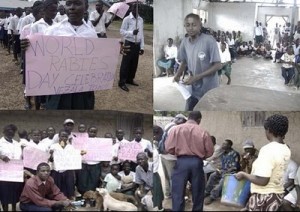
The theme of this day celebration was “ Kick Rabies Out of Liberia“.
At the indoor program, the Regional Coordinator made a speech about the important of government including animal health in our health policy.
Below is the summary of the speech made by the Regional Coordinator of LAWS, Mr. Morris Darbo:
I thank all the audiences who are here today for the world rabies day celebration. Today is the first in the history of Liberia for world rabies day to be celebrated in the country. This event marks the beginning of creating real awareness about this neglected disease (rabies). As we read the theme: Kick rabies out of Liberia, it involves collective efforts from schools, community members, NGOs, the government, etc. The issue of rabies has been neglected in all levels of our society. We can only kick rabies out of Liberia, if we all consider rabies as a threat to the wellbeing of humans and our pets. We can not promote the health system of this country if we neglect the health of other living creatures (animals). We can only live in a health society if the welfare of every living creatures matter.
Today, there are lot zoonotic diseases which are common in our society. Our government needs to include animal health into our human health policy. Our pets are our relatives; they are part of our families. In some of our homes, we sleep in the same rooms with our pets. That is normal in our culture. So we need to protect them too. They need to be included in our health policy. Their welfare needs to also be prioritized by the communities, by the county and by our government. We can only reduce the spread of rabies in our communities if we regularly vaccinate our dogs and cats against rabies. We can not do this without the availability of veterinary facility with rabies vaccines. The government needs to put in place a veterinary facility that can do this. We need to include humane education in all our schools. If people are inform and aware of how to care for the animals, they will know the problems face by the animals.
In some communities where there is an outbreak of rabies, instead of vaccinating the dogs and cats against rabies, the local authorities usually order the killing of all the dogs. Killing all the in a community can not stop the spread of rabies. It can only cause an influx of dogs from surrounding areas to fill the void.
In 2008, there was an outbreak of rabies in Foya city and some people died as the of dog bite. The district authorities ordered that all dogs be killed. There was a group organized to kill any dog they see. The group went from house to house killing dogs. After three months, there was an influx of dogs from surrounding towns and villages. Today, Foya has lot of stray dogs again. At the beginning of this month, September, a 13 year old boy died from Foya as a result of dog bite. The act of killing dogs to control the spread of rabies is very common in all parts of the country. Still every year, people die from dog bite in the country. We can not eradicate rabies by killing all the dogs. We need to regularly vaccinate our dogs and cats against rabies. We also need to know how to control the spread of rabies.
As LAWS join other organizations around the world today to celebrate the world rabies day, Sept. 28, 2010. LAWS will continue every year to celebrate this day in different parts of the country to create real awareness and educate the public about this deadly neglected zoonotic disease (Rabies) that continues to take the lives of many people in this country.
I want to again say a big thanks to every one here today.
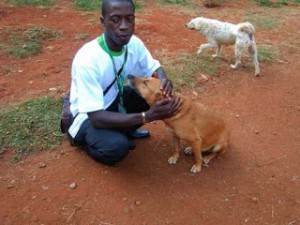
- Dramas and Poems
- Two dramas and two poems were performed at the program by students from the two schools. Below are the titles of the dramas and the poems:
- Consider animals in development (Drama)
- Treat our animals with respect (Drama)
- My dog is my relative (Poem)
- My dog and myself depend on one another (Poem)
- The Voinjama District Commissioner made a remark at the program.
He thanked LAWS for organizing this meaningful and educative program in his area for the betterment of his people and their pets. He said that what he learnt at the program will not be for him alone and his people. He said that he will educate his colleagues districts commissioners and his boss (The Superintendent of the County) that the method of killing dogs to stop the spread of rabies should eliminated from all parts of the county. He promised that they in government and his people will continue to collectively work with LAWS in addressing the issue of rabies in the county and the country at large.
He also made a request to LAWS that since the government is unable now to provide rabies vaccines in the county, LAWS should please continue her effort in appealing to donors and other organizations to continue to help promote the welfare of the people and animals in Lofa County. He concluded by saying that his office is open to LAWS for any dialogue for the well being of his people and their animals.
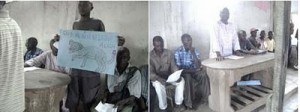
This report was compiled by:
Korpo Masan.
Assistant Coordinator for programs
Liberia Animal Welfare Society,
Voinjama City,
Lofa County,
Liberia,
Africa.

